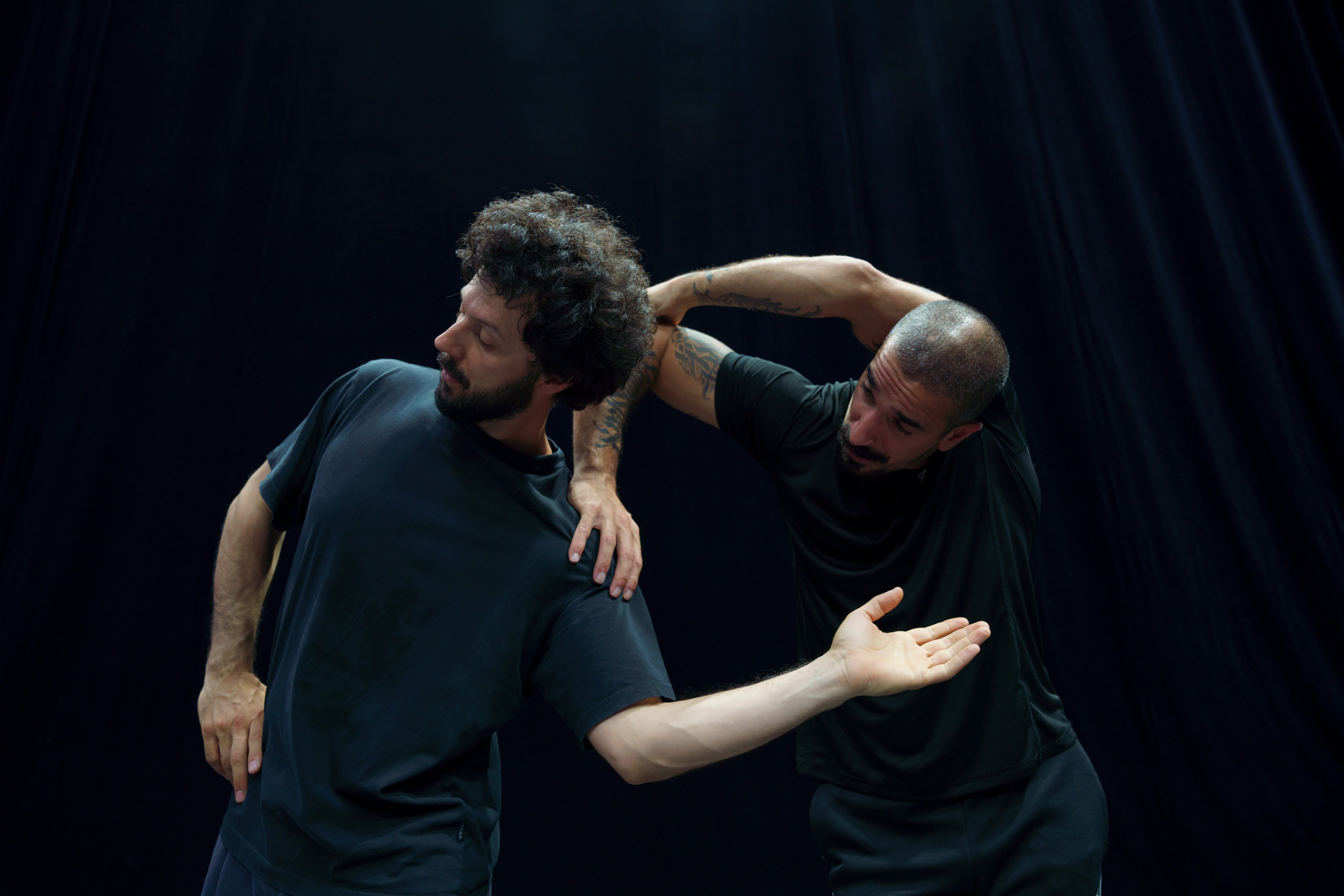Words by Maxine Flasher-Duzgunes. Performed at Sadler’s Wells.
Years ago in a workshop, I remember being in process with Slovakian choreographer Anton Lachky’s “puzzle work” a Forsythian creative modality in which the body moves within a never-ending gameplay, created by itself and for itself. In collaboration with William Forsythe and musician RuÅŸan Filiztek, Albanian dancer Brigel Gjoka and Kurdish dancer Rauf “RubberLegz” Yasit choreographed a mesmerising puzzle that traversed borders and prayers. Their pathways almost illusory —Yasit’s B-boyish body braids and Gjoka’s silky flourishes in and out of the floor — each plunged into a tireless state of both fantasy and rumination alongside the saz, the long-necked string instrument played by Filiztek. The duo, entitled Neighbours, unearthed the dancers’ distant identities in the cojoining of their hands, the coiling of red kerchiefs, and the thrilling dispersal of dust.
Their voyage, frequented by a hypnotic song and the rhythms of the daf (frame drum), reminded me of a quotation I came across back in school by 13th century Sufi poet, Maulana Jalalu D-Din Muhammad. “Would you become a pilgrim on the road of love?” he says, “The first condition is that you make yourself humble as dust and ashes.”
At the time I was researching the dance of the Mevlevi dervishes; I thought of spiral journeys to the heavens that physically move as little as two inches…but then I thought of linear journeys away from homeland that last hundreds of miles and up to entire lifetimes. This work comes at a time when we are seeing waves of migrants cross borders and line coasts — there is always hope for welcome arms but there is also fear for arms that do not bridge the space between shoulders, and worse, hearts that do not speak the same language. Neighbours was a native language, a love language, and indeed a puzzle, from a region plagued by centuries of conflict and conquest, yet home to some of the most beautiful poetry, music and dance of our modern era.
A nomadic language is one where ahead of you lies a path of dust; and in covering yourself in the ashes do you really learn where you are from, where your ancestors lie, and where love between homelands exists, slowly coming to light from underneath the sand.
Header image: Brian Ca.
